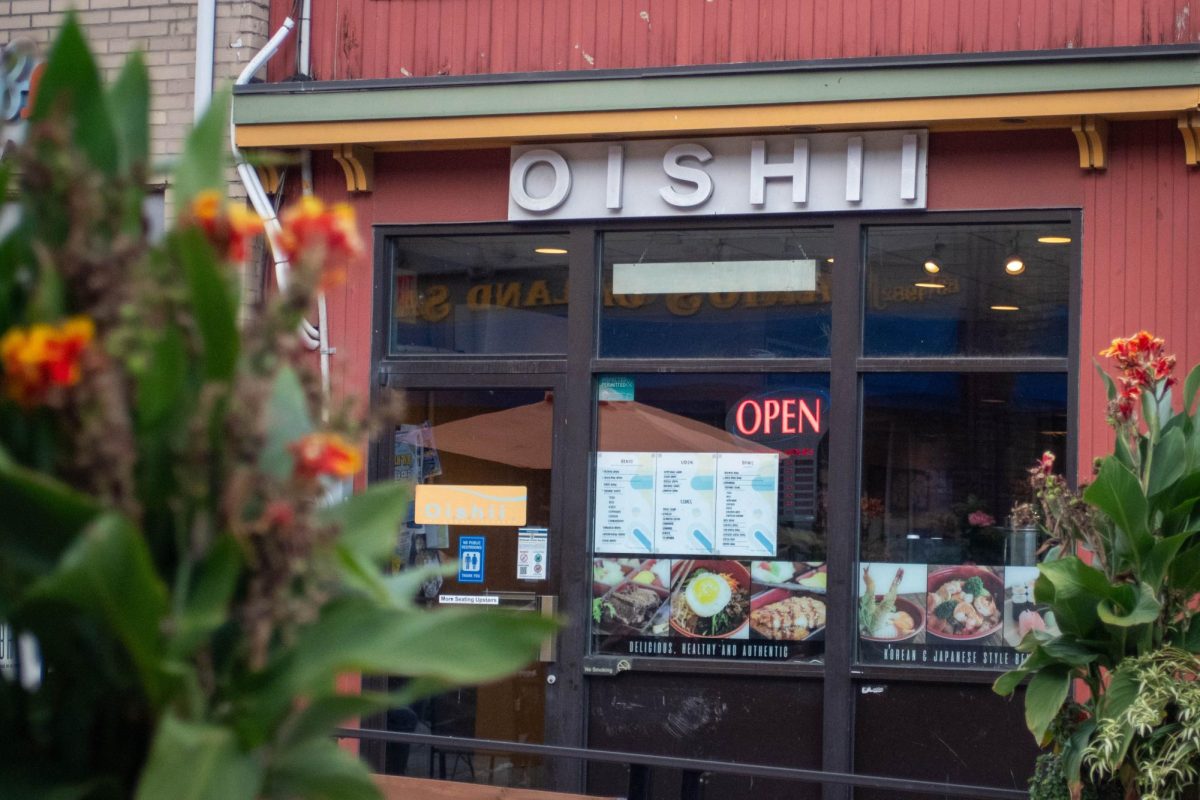Between its 90 neighborhoods, Pittsburgh has a diverse selection of restaurants throughout the city for every possible craving. Pitt students looking for a bite to eat off-campus, especially those with less common diets, are well-accustomed to options that can’t be paid for with Panther Funds.
Julie McGaughey, a junior majoring in digital narrative & interactive design, practices a vegan diet that fuels her searches for meals around the city.
“Coming to Pittsburgh and noticing that even restaurants that aren’t vegan tend to have a vegan option was really exciting for me,” McGaughey said. “I feel like in a bigger city, places are a lot more accommodating.”
McGaughey, who is passionate about clean eating, tries to pick restaurants with similar values as her. She highlighted Apteka and how the Eastern European restaurant in Bloomfield puts food on the table that is grown in a “responsible way.”
“I’ve always been pretty interested in sustainability,” McGaughey said. “I like restaurants that don’t just have vegan options, but vegan options that are locally sourced.”
McGaughey tends to venture out of Oakland for her meals and thinks others should do the same. Her favorite restaurant, Noodlehead in Shadyside, specializes in Thai food and offers a variety of vegetarian and vegan options.
“There is a lot more variety and a lot more fun vegan food outside of what Pitt offers,” McGaughey said. “I can also just tell that a lot of restaurants around here really care.”
In addition to Noodlehead and Apteka, McGaughey mentioned Bae Bae’s Kitchen in the Cultural District, Onion Maiden in Allentown and Ephesus Pizza in Downtown, which she described as “the best pizza I’ve ever had in my life.”
McGaughey, like many other Pitt students, does not have a car on campus. In order to venture out of Oakland when it comes to dining, McGaughey uses public transportation to her advantage, searching for restaurants that have a variety of food and are “bus-able.”
“I like to try foods that are different and from other cultures,” McGaughey said. “I am always open to go to a restaurant that is not only open to my diet, but serves food that I have never tried before.”
Rowen Slepian, a senior English writing major, thinks a range of options, especially off-campus, are important for all students.
“Having a place that you know fits your restrictions and you can get good food is super important for a sense of belonging,” Slepian said.
Slepian mentioned the commonly held desire among college students for cheap, comforting food. He referenced Taco Bell, Applebee’s and Olive Garden, describing off-campus restaurants as a “treat once in a while.”
“Cheap [food] places … it’s almost something you don’t really think about … but then suddenly you’re broke,” Slepian said.
Another major factor for where Slepian chooses to eat is ambiance. He mentioned Oakland’s Oishii Bento, located off Forbes Avenue, especially its quiet atmosphere and its upstairs seating arrangements, which are prime for people-watching.
“It’s important to me to find something that works for me — not just the food but the space,” Slepian said. “Finding places that you like and are in your budget and good places to be,” Slepian said.”
Sapna Chokshi, a junior majoring in global health and health informatics, is the president of EAT@Pitt, a club whose goal is to highlight immigrant-owned restaurants around Pittsburgh. As president of the club, Chokshi said she works to uphold the same values and passion on which it was founded.
“[The club founders] really wanted to focus on a smaller subset of restaurants in Pittsburgh — especially ones that may have had a harder time attracting people because of a more specific cuisine,” Chokshi said. “People don’t automatically associate Pittsburgh with diversity when they first think about it, but there are just so many options of food, people, cultures and ethnic backgrounds here.”
Chokshi, who is vegetarian, mentioned ShadoBeni on the North Shore, an immigrant-owned Trinidadian restaurant that is completely vegan. She also mentioned others, like Kiin Lao & Thai Eatery in Squirrel Hill, Arepittas Downtown, and Pasha Cafe & Lounge in Shadyside.
Chokshi specifically mentioned family and immigrant-owned restaurants, giving a nod to the previously mentioned Noodlehead in recognition of the reasonably priced entrees on their menu.
“A lot of smaller [restaurants] — and I think immigrant-owned falls into this — a lot of family-owned ones are really affordable,” Chokshi said.
McGaughey praised Pittsburgh for its endless spots to try, adding that her own personal connection to the city’s food makes her experiences more enjoyable.
“Honestly, I would just say that Pittsburgh is such a great place because it has a lot of hidden gems,” McGaughey said. “Just when you think you’ve found everything there’s a new place tucked in some little corner that has something you’ve never tried. I definitely love that I keep having eye-opening dining experiences.”


